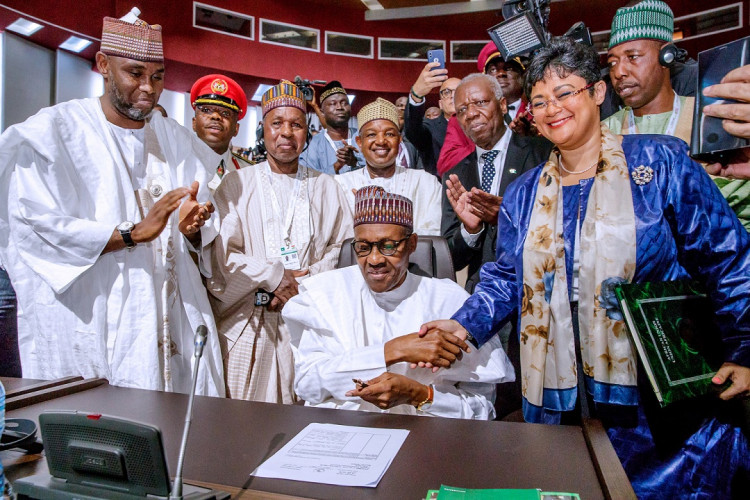After months of meetings and discussions and four years of talks, the long-planned free trade agreement that unites the economies of the continent of Africa has finally been launched. Leaders of the different African countries in the African Union signed the agreement at the African Union Summit in Niamey, Niger over the weekend.
The African Continental Free Trade Area (AFCFTA) will unite the continent's 1.3 billion people to create a $3.4 trillion economic bloc set to become a big player in the global economic stage. Leading nations in Africa initially came up with the plan more than four years ago. However, the agreement was only properly outlined back in March of last year, brokered by 44 out of the 55 African Union member states.
Initially, not all of the countries were on board with the idea, with Nigeria being the last to hold out. Nigeria had expressed some concerns over how the free trade agreement would affect its own manufacturing sectors, given the added competition. After conducting its own review of the trade agreement, Nigeria finally agreed to sign the pact last week.
The 55-nation trade bloc was launched at the event on Sunday, where the Union announced that it had nominated Ghana to become the host of the trade zone's headquarters. The AFCFTA will be the largest bloc of its kind created since the World Trade Organization was formed back in 1994. The partnership is aimed at unlocking the continent's economic potential through the removal of intra-regional trade barriers. Through this process supply chains and overall output in the continent is expected to significantly increase.
According to Egyptian President and African Union Chairman Abdel Fattah al-Sisi, the pact should have the attention of the world now as the continent is set to become a world player. The chairman added that the success of the AFCFTA will definitely be a test for each nation that is part of it, as it does offer the promise of a more prosperous Africa for its people.
Africa definitely needs to become united as it is severely lagging behind other regions when it comes to regional trade. As of 2017, the continent only accounts for 17 percent of global exports. This is quite low when compared to the amount of trade done in Europe and Asia, regions which have greatly benefited from the establishment of trade blocs in recent decades.
Before it can compete with other regions, Africa would have to address some of its more dire issues that hamper its continued progress. These challenges include poor road infrastructures, political strife, border bureaucracy, and wide-spread corruption. These challenges have so far held back the countries from substantial growth.






